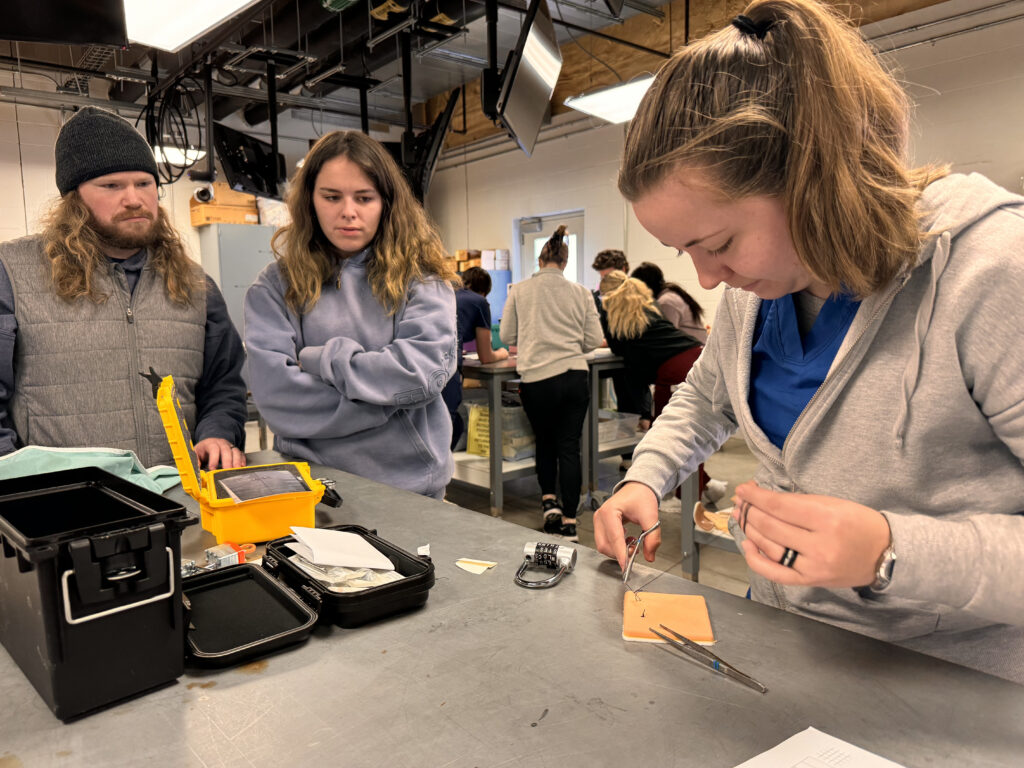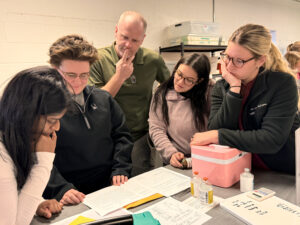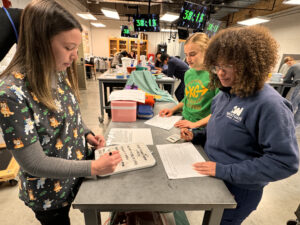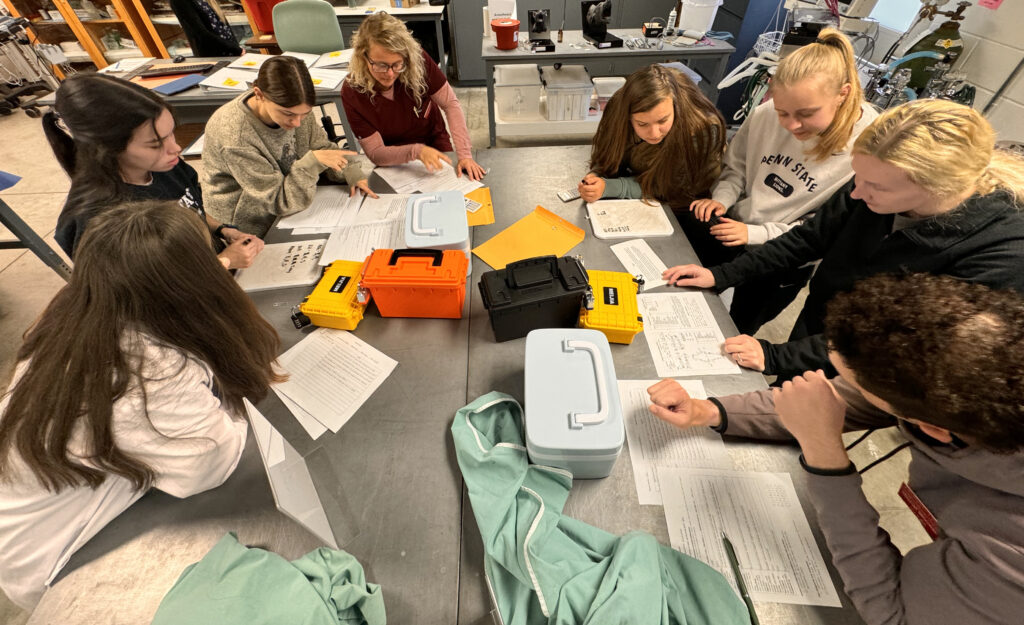
Models and simulators pack the Clinical Skills Laboratory in the College of Veterinary Medicine.
Intermixed among those models and simulators though are stuffed animals and other homemade models, most curiosity of Dr. Brian Collins, clinical assistant professor of veterinary clinical sciences and the skills laboratory’s coordinator.
Faced with a limited budget, Collins is always looking for ways to upgrade the models in the Clinical Skills Laboratory. With a 3D printer, Collins has been hard at work crafting items such as ear canals that he fits into stuffed animals. These models, both purchased and homemade, are designed for veterinary students to refine their clinical and technical skills before treating a live animal for the very first time.
Collins’ latest “model” is a continuation of his innovative teaching methods.
“I am a big fan of escape rooms, puzzles and mysteries,” Collins said. “Very early on in my time in the Clinical Skills Lab, I kicked around the idea of creating a veterinary Escape Room experience we could have students go through.”
That idea became a reality this semester for first-year veterinary students. Working in groups of three or four, they are presented with one of six cases Collins developed. In each one, the students are tested on their dental knowledge, drug calculating abilities, medication administration skills, and basic suturing and instrument handling.

 “These are all skills they have learned in the course previously,” Collins said. “By using these skills in a variety of ways, they solve puzzles that lead to combinations and keys which open various boxes and container, which in turn leads them to their next clues.”
“These are all skills they have learned in the course previously,” Collins said. “By using these skills in a variety of ways, they solve puzzles that lead to combinations and keys which open various boxes and container, which in turn leads them to their next clues.”
Once the students have worked through and completed their case, they have, as Collins puts it, “Escaped the Clinical Skills Lab” and are free to leave for the day.
Collins has long hoped to implement this material into the VM1 Clinical Foundations course. He became more determined to create the Escape Room when student feedback on the course indicated they wanted more hands-on interactive labs.
This past summer, Collins began crafting possible scenarios and developing different ideas for the puzzles before implementing it this week.
Not only does the Escape Room fulfill one of the Collins’ goals but it also provides a different way to learn for the students.
“This helps students learn in a different and unique approach by helping them practice the skills they have been taught,” he said. “It also allows them to flex their problem-solving skills by thinking outside the box and approaching challenges from different perspectives much like they will have to do out in practice and in life.
“Plus, it’s just a lot of fun. Seeing how much enjoyment the students have gotten out of going through these cases puts a smile on my face and makes the time and effort I put into creating these cases for them worth it.”
November 2024

